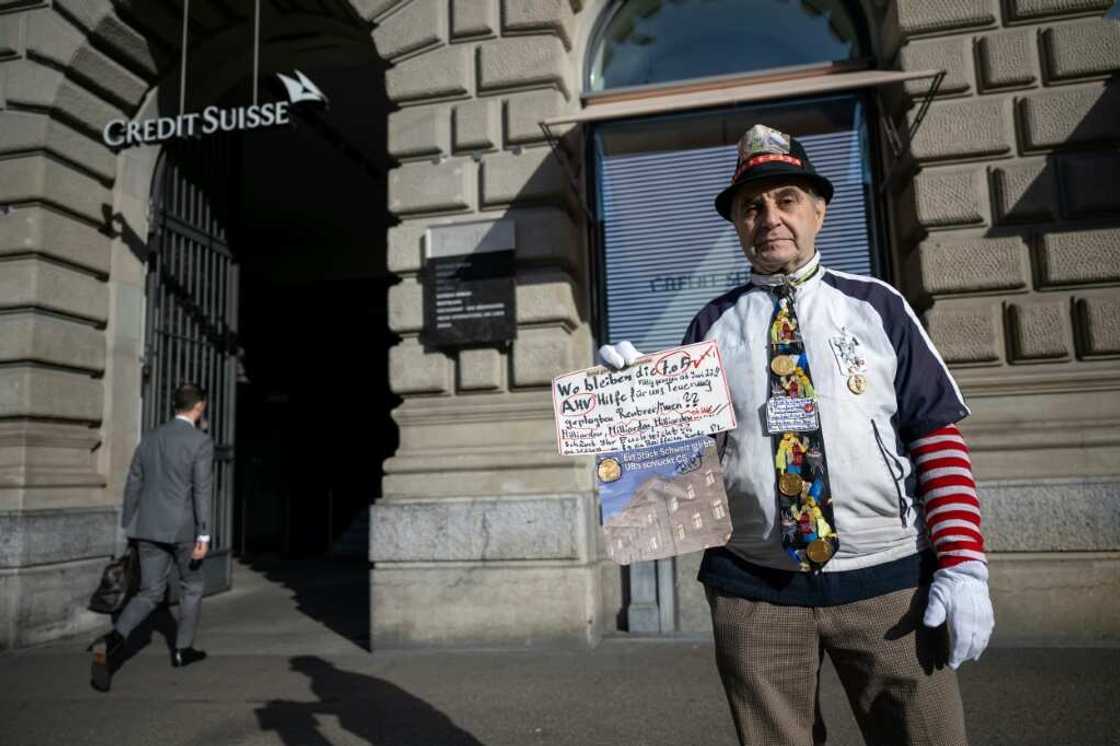Credit Suisse buyout faces harsh criticism at home

Source: AFP
UBS's emergency takeover of its troubled Swiss rival Credit Suisse, with significant backing and arm-twisting from Bern, sparked fears Monday it could weaken the country's biggest bank and financial sector as a whole.
Switzerland was in shock after its largest bank had agreed under pressure from Swiss authorities to swallow up the second largest for $3.25 billion, in what the government insisted was a vital step to prevent economic turmoil from spreading throughout the country and beyond.
Swiss media and politicians alike expressed outrage felt that one of the country's oldest and most iconic banking institutions went poof, insisting that despite a string of crises and scandals, it could have been saved.
Swiss authorities faced criticism for reacting too slowly as Credit Suisse -- seen as the weakest link in European banking after several years of unrelenting scandals and crises -- saw its share price implode last week amid market turbulence over the collapse of two US banks.
On the worst day of trading Wednesday, when Credit Suisse saw it share price drop to historic lows, the central bank and regulators took a full day to announce a $54-billion lifeline for the bank, and the government waited until Sunday evening to speak publicly about the debacle.
'Historic scandal'
Thierry Burkhart, head of Switzerland's rightwing Liberals party, described the deal as "shameful for Switzerland", and said Sunday was "a dark day for the Swiss financial sector and for Switzerland as a whole."
PAY ATTENTION: Subscribe to Digital Talk newsletter to receive must-know business stories and succeed BIG!
The Tages-Anzeiger daily meanwhile slammed the deal as "a historic scandal", while the Tribune de Geneve said it was a "waste, socially (for jobs), economically (for the reputation of the country), and shameful politically for the politicians who were too slow to act."
Many acknowledged though that when push came to shove, there had been little choice. The government had said the only alternative to the UBS deal was a full nationalisation of Credit Suisse.
The deal was the "best solution for restoring the confidence that has been lacking in the financial markets recently", Swiss President Alain Berset told reporters Sunday.
If Credit Suisse went into freefall, it would have had "incalculable consequences for the country and for international financial stability", he said.
UBS meanwhile is entering this forced marriage in full health, having raked in a $7-billion net profit in 2022.
'Significant risks'
But the mega-merger is not without risk for the institution and beyond.
While "the deal could draw a permanent line under the Swiss banking sector's problems," Capital Economics analyst Andrew Kenningham cautioned in a note that "the track record of shotgun marriages in the banking sector is mixed."
"Further substantial losses in the legacy bank cannot be ruled out and this could affect confidence in the enlarged UBS and/or prompt demands for further state support."
Vontobel analyst Andreas Venditti agreed.
"There are many uncertainties and significant risks," he wrote in a note, warning that "the UBS investment case changes substantially."
"The issues currently impacting the global banking sector are not over."
UBS was already the global wealth management leader, but the deal will create a behemoth managing a total of around $3.4 trillion.
The merger could also have dire consequences for jobs in Switzerland, where UBS and Credit Suisse have significant overlap in their businesses, and each with their own branch offices in every Swiss town and village.
A commentary piece in the Neue Zurcher Zeitung meanwhile voiced alarm that authorities were allowing UBS, already a behemoth on the world stage, to balloon further, making it "even more too big too fail".
"A zombie is disappearing, but a monster is in the process of being born."
Source: AFP





